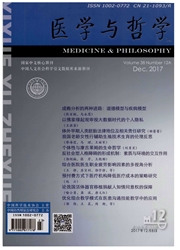

 中文摘要:
中文摘要:
为探讨溃疡性结肠炎患者硫嘌呤甲基转移酶(TPMT)基因多态性分布,预测服用硫唑嘌呤(AZA)的溃疡性结肠炎(UC)患者疗效和副作用,实验测定2010年7月-2011年8月昆明医科大学第一附属医院确诊的40例溃疡性结肠炎患者和30例健康对照者TPMT基因型,调查其中9例服用AZA患者的疗效和安全性。结果在2例发生骨髓抑制的患者中发现TPMT*3C杂合子;其余病例未发现TPMT突变等位基因。结果提示UC患者服用AZA安全有效;TPMT基因多态性检测能在一定程度上预测UC患者使用AZA的副反应并指导临床药物用量。
 英文摘要:
英文摘要:
To predict the efficacy and side effects of AZA in treating patients with ulcerative colitis by studying TPMT gene polymorphism, 40 patients with ulcerative colitis and 30 healthy were divided into two groups from July 2010 to August 2011 at First Affiliated Hospital of Kunming Medical University. TPMT genotypes were determined. To observe the effi- cacy and safety in 9 patients who took Azathioprine as their treatment against ulcerative colitis. In 9 patients taking AZA, 2 had TPMT 3C heterozygous mutation and those patients experienced bone marrow suppression during the treatment. TPMT mutations alleles were not detected in any of the 5 patients without side effects and 2 patients suffered other side effects. The result demonstrated that The frequency of the known mutant TPMT alleles is low both in the healthy and UC patients, which suggests that Azathioprine treating UC patients is safe and effective. TPMT gene polymorphism can par- tially predict adverse effects in UC patients taking AZA and provide reference on treatment dose.
 同期刊论文项目
同期刊论文项目
 同项目期刊论文
同项目期刊论文
 期刊信息
期刊信息
